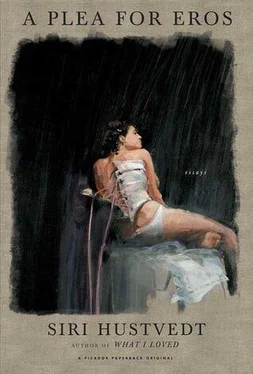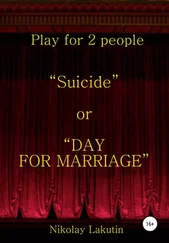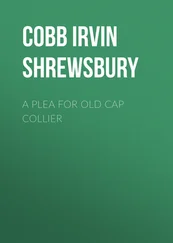That fall, I walked into another world. New York City struck me as more brilliant and more alive than anywhere else on earth. My body hummed with the city’s speed, verve, and humor. I acquired the urbanite’s sixth sense, the ability to detect the vague scent of danger in the streets and stiffen oneself against it. I wore out my shoes walking, and as I walked I rejoiced in the city’s massive ugliness, its mysterious ruined blocks, its gorgeous pockets of wealth, its markets, its crowds, its colors. Columbia is in and of the city, and I can’t separate one from the other during those years. Both the city and the school were part of a crazy new rhythm of things, a repetitive beat of excitement and discovery. The graduate department in English where I had come to study teemed with critical theory. Foucault, Derrida, Althuser, Lacan, Deleuze, Guattari, and Kristeva were authors I’d never heard of, much less read. By the time I arrived, structuralism had come and gone and the hipsters who populated the graduate schools in the humanities were deep into its postincarnation.
The ideas were our weather. We lived in them and they lived in us, and these hot, strong thoughts cast a subversive glare over Philosophy Hall and the Hungarian Pastry Shop, where students gathered to argue and explain and pick apart the French imports. When Jacques Derrida’s latest book was published in English, Salter’s, one of the Columbia neighborhood bookstores, posted a large handwritten sign in its window: WE HAVE DERRIDA’S GRAMMATOLOGY! Students stormed the shop to snatch a copy.
Ideas are always personal, too.
Iam sitting with K in the Hungarian Pastry Shop talking to him about Ferdinand de Saussure’s Course in General Linguistics. It’s a book K. knows well, and I am asking him about the relation between concept and sound image. He answers me by drawing a small picture of a tree on a napkin. It’s similar to an image in the book. I look down at the little drawing and what was abstract becomes real. I understand. A simple lasting revelation: We see through language. The word isolates, defines, creates the borders of the thing. Arbitrary and floating, language dissects the world.
F. is telling me about Kojéve’s reading of Hegel. He is a philosophy student, a good teacher, and a dear friend. He is patient, methodical, startlingly articulate. Systems take shape for me in his words. He is talking about the master/slave chapter in The Phenomenology of Mind. Hegel is too hard on the page, but now I am thinking about self consciousness, about two-ness, mirrors, about “I”s and “you”s, about entanglement.
The book is on the library table in front of me. To my left, the windows are letting in the last of the afternoon light that is the beginning of dusk. The book is Roman Jakobson’s Two Aspects of Language. Iam reading about aphasia. Jakobson writes that the aphasic patient loses first the words a child learns last— linguistic shifters, like pronouns. I exult in this discovery. I will use it in my dissertation, but more than that I recognize that human identity finds itself only in language as the subject and yet this “I” is fragile; it disappears with the “you.” The thought echoes inside me like the articulation of an old, old secret I’ve always known but never had the words with which to express it.
I will take some ideas and leave others. It’s all a question of resonance. Old thoughts from earlier reading will return in new forms, and I will fall in love with all the ideas that articulate what happens between us, with Martin Buber’s Between Man and Man, because he investigates the silences of touch and feeling, with Mikhail Bahktin’s The Dialogic Imagination, because it explicates the raucous plural dance of the novel, and even with parts of the intractable Jacques Lacan, so convoluted and maddening and yet, in some passages, a spark to revelation. In D.W. Winnicott I will find the story of the self and the other, the wounds and the blanks, and how the forgotten back-and-forth of early life becomes who we are. Years later, I will put the insight into the mouth of one of my characters, Violet, in What I Loved. “Descartes was wrong,” she says. “It’s not ‘I think, therefore I am.’ It’s ‘I am because you are.
I was poor in the city, and when I read, wrote poems, or just lay awake in my apartment I heard my neighbors through the thin walls. They rattled their pots and pans when they cooked, argued with one another, and made noisy love. Police sirens, rumbling garbage trucks, footsteps in the hallway made me jump and then kept me vigilant for the next sound. A young woman was raped in the elevator of my building. I heard stories of muggings, senseless attacks, and murders. One night on my way home, an ordinary-looking man stopped me on the street. I thought he wanted the time, but instead he lunged at me with a livid face and barked out an obscenity before I managed to duck and run. Men pursued me hard in those days, and there were times when I felt emotionally assaulted. They were too hungry, too eager, too full of lust I couldn’t return, and after an evening out I could feel depleted by their stubborn, never-ending pressure. Then it was a relief to be alone, a relief to see my books, my typewriter, my bed. And yet it was a time of dancing, too, of late nights and sporadic, short-lived passions I pursued on my own terms. My own aggression pleased me. But I wanted K., perhaps because he wanted me only fitfully, because he was elusive. I fell into and then got caught in the repetitive machinery of perverse desire — happiness and pain at regular, then predictable intervals, the cycles of an idiot in love — and finally, after many months of motion, the engine ground to a halt. I didn’t want it anymore.
February 23, 1981. I am leaving the reading with J., and we pause in the lobby of the 92nd Street Y to talk about the poems we have just heard. From where I am standing I notice a beautiful man in front of the door. He has a slender face, enormous eyes, and a small, delicate mouth. His hair is nearly black, and his skin is pale brown. He is smoking a little cigar, and he hunches over in his leather jacket and blue jeans as he brings the reed of tobacco to his lips. I notice that his feet are rather large, and I like these big feet, too. In seconds, I have taken in the whole of him and feel woozy with attraction. I can’t remember if J. sees me ogling and tells me that he knows the man or if I ask him if he has any idea who that person is. “That’s Paul Auster,” he says, “the poet.” We are introduced, and then the three of us head downtown in a taxi. In the backseat, Paul tells me about George Oppen, the poet he has just visited in California. I like his voice, and I like the warmth, the tenderness, I hear in it when he speaks of “George.” I didn’t think it then, but now I wonder if I wasn’t hearing something familiar. My father had that when he was alive. He was alive then. My father’s voice changed inflection when he spoke about someone he loved. In the taxi, I am already in love, crazed, enthralled, smitten, and am trying to hide it. The man beside me is not. I can see it in his shrouded, thoughtful eyes. I don’t let hint go. At the party, I talk only to him. We eat. We talk. We walk in the streets and talk. We sit in a bar and talk. The beautiful eyes are gaining focus. He is looking at me, listening to me. I can tell that he likes me.
It is early in the morning and we are standing on West Broadway together in the street. I am standing very close to him, looking into his face, but now, after hours and hours of talk, I have nothing to say. It is late. The evening is over, and I will go home and think about him. Then he kisses me, and it’s the best kiss in the world. A cab pulls up and we climb in together.
Читать дальше












